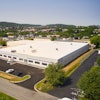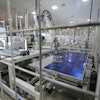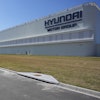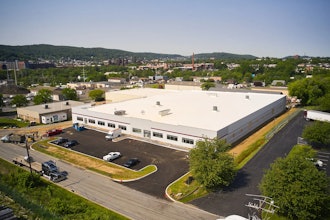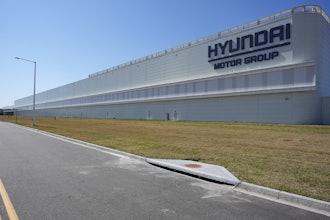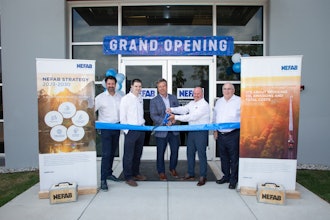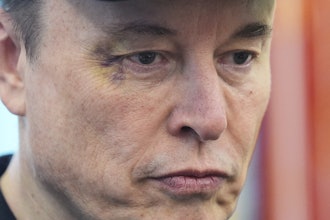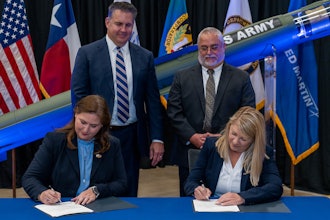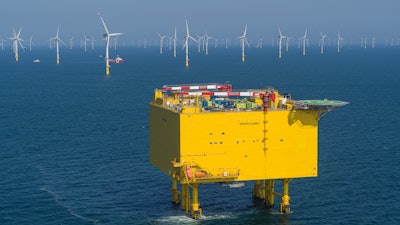
3D metal printing company Seurat Technologies announced an agreement to develop 59 tons of additively manufactured metal components for Siemens Energy turbines.
Development will ramp up over a six-year-period for parts meeting the material qualification requirements of Siemens Energy. The initial focus will be on one part family, with the possibility of increasing volumes to include others in the future.
Seurat's Area Printing manufacturing by enables 3D printing to be competitive to conventional methods while leveraging 100% renewable green energy. Siemens Energy uses 3D printing to produce a number of components in instances where it provides a more sustainable process and improved economics.
"We're excited about our future printing high-quality parts with fantastic economies of scale to deliver cost savings," Siemens Energy Head of Venture Building Enrique Gonzales Zanetich said. "We invested in Seurat Technologies and believe that strengthening our partnership could help to accelerate decarbonization in the industry at scale."
Siemens Energy has also invested cash in Seurat Technologies through its venture arm, Siemens Energy Ventures. Operating at the intersection of the corporate and startup ecosystems, Siemens Energy Ventures builds, pilots and invests in startups that are developing innovative energy and decarbonization technologies and business models.
"Seurat's partnership with Siemens Energy is a major milestone for 3D metal printing and our potential to deliver limitless scalability and cost savings," Seurat CEO and Co-Founder James DeMuth said. "Volumes of this order of magnitude significantly move the needle towards greener technologies and unlocking additive manufacturing's full potential."
Seurat's Area Printing can competitively displace some types of traditional manufacturing and reduce greenhouse gas emissions related to waste material, freight, transportation and warehousing. Seurat anticipates mitigating as much as 100 metric tons of CO2 by 2030 and has validated its carbon footprint forecast according to ISO 14064 standards.
"The metal additive manufacturing market increased by more than 20% in 2022 year-over-year and is valued today at about $3.2 billion," said Dr. Maximilian Munsch, managing partner of strategy consultancy AMPOWER. "The users and suppliers in this market expect success to continue, anticipating similar growth in the coming five years. An important driver is the energy sector. Metal 3D printing has become a crucial enabler technology for innovation to significantly reduce the CO2 footprint throughout the turbine's lifetime. We expect the demand for such components to grow by 26% annually."

